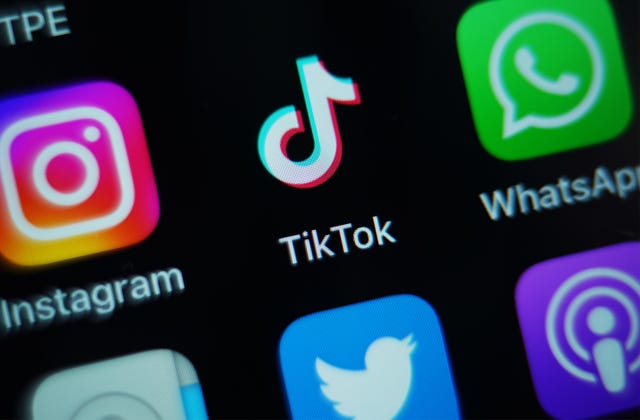
Research by the media regulator has found that TV and online are at marginally similar rates as the main source of news for UK adults in 2024.
Broadcasters had spent six decades leading radio and newspapers as the British public’s main source of news, before seeing a downward trend in recent years, according to Ofcom.
Its news consumption survey 2024 found TV news as the primary source of information has gradually “declined”.
To address the issue, Ofcom’s next review of public service media will look at “how well PSBs (public service broadcasters) have delivered for UK audiences, including how PSB news is made available to audiences online”, and will provide recommendations on potential regulation or legislation needed.
TV was seen as the central platform by 75% of survey respondents in 2023, and 79% in 2018, but the figure was 70% in 2024, the Ofcom survey showed.
Online news has seen the reverse trend, increasing from 64% of people’s main source in 2018 to 68% in 2023, and then moving to the 71% this year.

TV and online are “now on a par”, Ofcom said in its report that saw market research company Jigsaw Research conduct 5,466 interviews.
Yih-Choung Teh, Ofcom group director, strategy and research, said: “Television has dominated people’s news habits since the 1960s, and it still commands really high trust.
“But we’re witnessing a generational shift to online news, which is often seen as less reliable – together with growing fears about misinformation and deepfake content.
“Ofcom wants to secure high-quality news for the next generation, so we’re kicking off a review of the public service media that help underpin the UK’s democracy and public debate.”
Among adults who directly access news publishers, websites and apps, the BBC website comes top at 59%, followed by Sky News (20%), The Guardian (20%) and The Daily Mail (19%).
Social media is a “significant component of online news consumption”, Ofcom said, with more than half of UK adults (52%) using it as a news source.
The top individual sources remain various PSBs such as the BBC and ITV.
However, Ofcom did share figures with a downward trend.
BBC One is continues to be favoured by 43% of respondents in 2024, while rates were at 49% last year, and 58% in 2019.
ITV1 saw a similar decline, going from 40% in 2019 to 30% in 2024. The organisation that came third was Facebook which has also seen its audience fall from 35% in 2019 to 30% in 2024.
The way young and old people consume news has also diverged, Ofcom research shows, with 88% of 16 to 24-year-olds saying they use online sources for news, and only half (49%) using TV.
However, for those aged over 55, TV news is the main news platform used by 85% of people, with 54% saying they use online platforms for news.

Ofcom said social media is a “significant component of online news consumption” with 52% using it as a news source in 2024, compared with 44% in 2018.
The media regulator said radio use for news has been “stable”, while the “use of newspapers is in long-term decline”.
A majority, 96% of UK adults, surveyed look at news in some form.
Ofcom compared 2024 with most of the years to 2018 because of the similar methodology used. It did not have data from the pandemic year of 2021.


Comments: Our rules
We want our comments to be a lively and valuable part of our community - a place where readers can debate and engage with the most important local issues. The ability to comment on our stories is a privilege, not a right, however, and that privilege may be withdrawn if it is abused or misused.
Please report any comments that break our rules.
Read the rules here